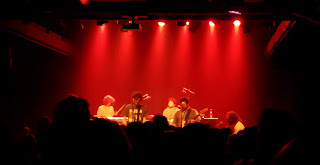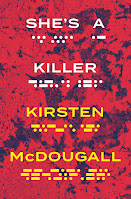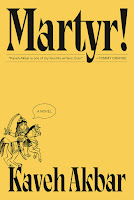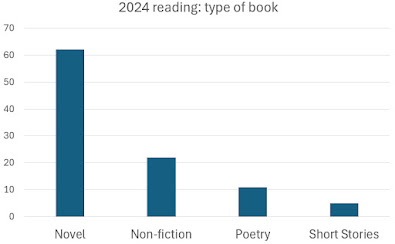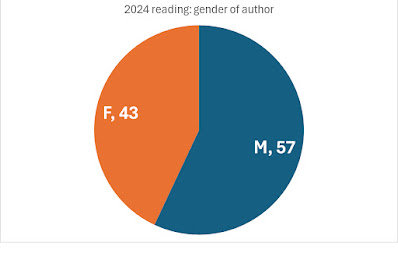MUSIC - JAN
READING
18 books so far this year. On pace for 108 (yeah, but, holiday reading... but also, no poetry collections yet...)
The Islanders by Christopher Priest (novel, physical book, UK, 2011)
Classic Priest tropes (twins, theatre, unreliable narrator) in his fantasy world that feel like Earth if only Europeans existed (so, kinda ick). More interesting conceptually than in execution.
The Rules of Backyard Cricket by Jock Serong (novel, physical book, Aus, 2016)
Imagine Mark Waugh bloodied & stuffed in a car boot, reflecting on life. Loved all the backyard cricket stuff, brotherly tensions & dependency, the rise through to state cricket legend... The crime framing and twists felt less vital.
Funny Story by Emily Henry (novel, audiobook, US, 2024)
As if reader notes from Henry's last book (Happy Place) said, "We want the exact same setup, but give him tattoos and spend longer on the sex scenes"... Elevated by the GOAT narrator (Goatarrator?) Julia Whelan.
Doxology by Nell Zink (novel, physical book, audiobook, US, 2019)
Picked up on the promise of the elusive GOOD rock'n'roll novel. Starts by diagnosing a character with high-functioning Williams syndrome, which is unknown to all characters, and we keep this level of remove from most characters throughout. Oh well.
Are you there, God? It's me, Margaret (novel, audiobook, US, 1970)
Simultaneously an artifact of its era, a blueprint for others to follow (even picked up some resonances in Doxology, which I read concurrently) and an engaging yarn. Now to see what my 12y.o. daughter thinks 🤔
The Survivors by Steve Braunias (non-fiction, audiobook, NZ, 2024)
The alleged final book in a true crime trilogy. Much like Palmerston North pathologist Cynric Temple-Camp's trilogy-capping The Final Diagnosis, which I read last month, there's great moments, but it lacks the cohesion of earlier books.
TransAtlantic by Colum McCann (novel, Ireland, 2013)
Had a couple solo South Island car trips tin Jan to churn through the audiobooks. Listening to this in transit felt apt, and the slow accumulation of detail, meaning and connection paid off...
Orbital by Samantha Harvey (novel, UK, 2024)
...unlike this one, which felt like an extended creative writing exercise. No liftoff, no new layers exposed, dead on arrival.
Foraging New Zealand by Peter Langlands (non-fiction, physical book, NZ, 2024)
The author's Instagram is full of quirky finds & unique dishes, but this is more of a straightlaced field guide. Kinda wished the book had more personality, & maybe a few place-based 2 page spreads (foraging at the beach, etc)
Fourth Wing by Rebecca Yarros (novel, audiobook, US, 2023)
Game of Thrones meets Harry Potter "romantasy" that was apparently big on BookTok (shrug) & people took the day off work to read the 3rd book when it came out last month. The engine runs but no need to ride again.
Magic Pill by Johann Hari (non-fiction, audiobook, UK, 2024)
Hari both sides the Ozempic debate, with a heavy dose of Supersize Me-style autoethnography.
When it All Went to Custard by Danielle Hawkins (novel, audiobook, NZ, 2019)
I was once on a panel with Hawkins & Lloyd Jones (who demonstrated zero curiosity in commercial fiction/romance). Turns out, Hawkins is just as interested in the economics of farming as affairs of the heart. Time for Take 2.
Northern Lights (His Dark Materials book 1) by Philip Pullman (novel, audiobook, UK, 1995)
Thought I should check out what all the fuss is (was) about. Twas good. Not sure my kids are fantasy kids, so may not every go any further in this series.
The Colour of Magic (Discworld Book 1) by Terry Pratchett (novel, audiobook, UK, 1983)
Thought I should check out what all the fuss is (was) about. Twas okay. I'm not a fantasy guy (nor a this whole scene/character is a set up for a joke guy), so may not go any further with TP, though Pratchett heads may twist my arm.
Twist by Colum McCann (novel, physical book, Ireland, 2025)
Reviewed this one for The Listener...
Theft by Abdulrazak Gurnah (novel, physical book, Tanzania/UK, 2025)
...and this one.
Total F*cking Godhead: The Biography of Chris Cornell by Corbin Reiff (non-fiction, audiobook, US, 2020)
Reiff didn't get access to interview anyone in Cornell's inner circle, so relied on previously published interviews and articles. That distance is felt throughout, as is the fact there can't be any new revelations.
Villa Incognito by Tom Robbins (novel, audiobook, US, 2003)
Hadn't read Robbins (RIP) before. Still not sure how representative this one was. Sooo many references to scrotums.
MOVIES & TV
Rogue Heroes (of the SAS) - Seasons 1 & 2
The Jackal - Season 1
Black Doves - Season 1
Ludwig - Season 1
The Kins of Tupelo - Season 1
Win or Lose - eps 1-4 (me and my son are really enjoying this)
The Lost Children
Night Bitch
Speed*
Mrs Doubtfire* (umm...)
MUSIC - FEB












